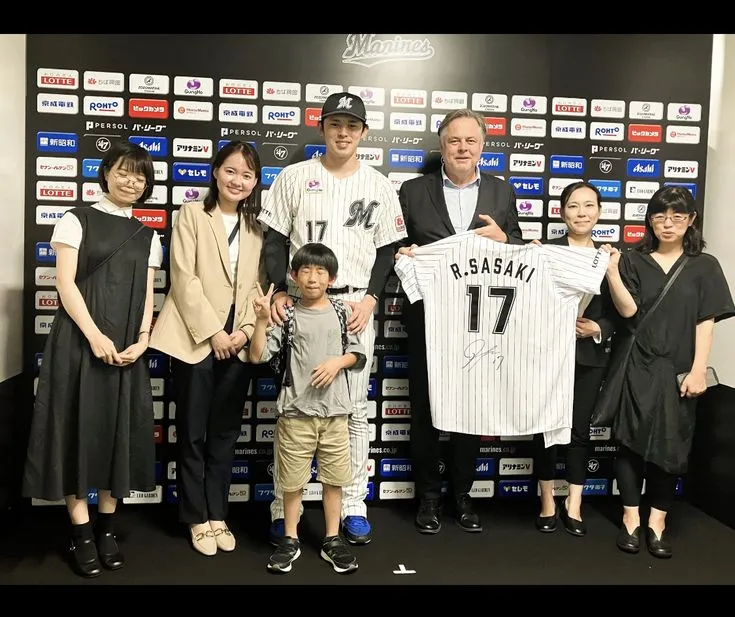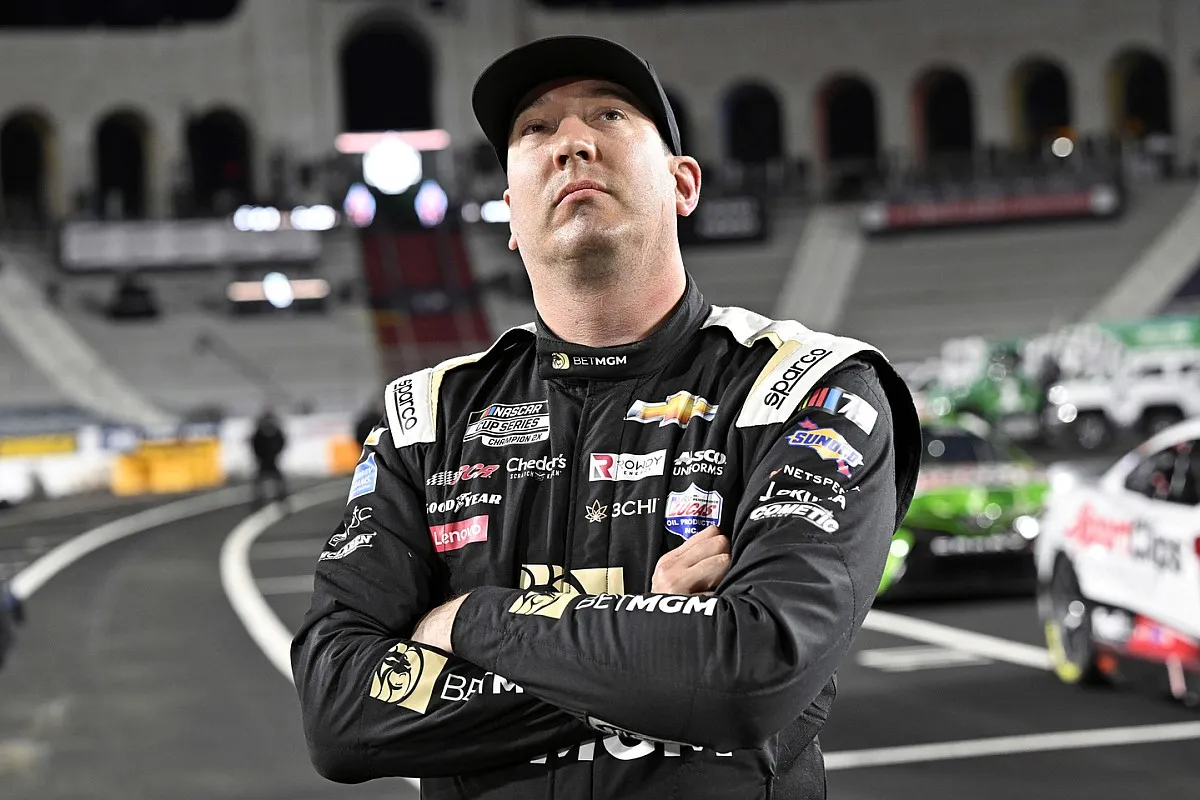

He Tied the Knot… and Then Lost His Family? The Tragic Twist in Roki Sasaki’s Life
The Rise of a Prodigy: Roki Sasaki’s Meteoric Ascent
From the windswept coasts of Iwate to the thunderous cheers of Japan’s baseball stadiums, Roki Sasaki has been called many things—phenomenon, prodigy, once-in-a-generation pitcher. With a right arm that seemingly defies physics and a calm demeanor that belies his age, Sasaki carved out a name for himself early. By the time he reached his twenties, he was already flirting with records set by Japan’s baseball gods.

But hidden behind the headlines and highlight reels is a life that’s known as much tragedy as triumph. And in a twist more shocking than any inning-ending pitch, Sasaki’s story took a heartbreaking turn—just when it seemed he had finally found peace.
From Loss to Greatness: A Boyhood Marked by Disaster
Born in 2001 in Rikuzentakata, Iwate Prefecture, Sasaki’s early years were steeped in tragedy. When the 2011 Tōhoku earthquake and tsunami hit, it wiped out vast stretches of coastal Japan—including his hometown. At just nine years old, Sasaki lost his father and grandparents to the disaster. He, his mother, and two younger siblings survived, but the pain and devastation were irreversible.
Yet even as a child, Sasaki displayed a resilience that would later become his signature on the mound. Baseball wasn’t merely a sport—it became an emotional refuge, a space where he could channel grief into focus, and pain into power.
His raw potential was evident early on. Coaches marveled at his pitching velocity, his control, and his mental discipline. But they also saw a boy who had aged beyond his years, forced by fate to grapple with loss long before most children ever need to.
Baseball Becomes a Calling, Not Just a Career
As Sasaki advanced through school leagues, whispers began to grow. Scouts described his fastball as “unnatural.” By his senior year of high school, he was clocked at 163 km/h (over 101 mph)—a staggering feat in any league, let alone at a pre-professional level in Japan.
In 2019, he was drafted by the Chiba Lotte Marines, entering Nippon Professional Baseball (NPB) with monumental expectations. The media dubbed him “The Monster of the Reiwa Era.” But Sasaki remained quiet, humble, introspective—a young man clearly haunted by more than just pressure.
And then, in 2022, he did what few thought possible: he threw a perfect game, the 16th in NPB history, followed by eight more perfect innings in his next start. At just 20, he was breaking not only records—but the boundaries of what people thought could be done.
Finding Love in the Shadows of Stardom
Despite his growing fame, Sasaki remained an intensely private figure. Rarely granting interviews, rarely seen outside of baseball-related contexts, he cultivated a mystique. But behind closed doors, something beautiful had been quietly blossoming: he had fallen in love.
In early 2023, rumors surfaced that Sasaki was engaged to a childhood friend, someone from his pre-fame life who had known him before the accolades, before the stadium lights. She wasn’t a celebrity or influencer, but a teacher—a grounded, kind-hearted woman who reportedly helped anchor Sasaki’s world.
By the end of 2023, they were married in a quiet, family-only ceremony, far away from the spotlight. Teammates would later describe Sasaki as “glowing” in training camps that winter. For the first time in years, it seemed, he wasn’t just surviving—he was truly happy.
The Shocking News: A Family Torn Apart
And then, in early 2024, the unthinkable happened.
Just weeks after his marriage, news broke that Sasaki had withdrawn suddenly from team activities. At first, it was chalked up to an “unspecified personal matter.” But whispers became headlines when local news outlets began reporting that Sasaki’s mother had passed away—suddenly and unexpectedly.
The emotional blow was catastrophic. Sasaki, who had already lost his father and grandparents in the tsunami, was now, in a sense, orphaned again. His mother had been his constant, his rock, his greatest champion. Losing her wasn’t just heartbreaking—it was destabilizing.
As fans mourned with him, few knew the full scope of what had just transpired. In the days following her death, reports emerged that Sasaki’s younger brother had chosen to leave their shared home, moving in with distant relatives. And in an even more painful twist, insiders close to the team suggested that Sasaki’s new marriage was beginning to fray under the emotional weight.
What had been a story of love and rebirth was beginning to unravel. Whispers turned to questions: Was Sasaki still able to focus on the game? Could anyone endure that much grief and still perform at an elite level?
A Man Alone Again, But Still Pitching
To the astonishment of fans and coaches, Sasaki returned to the mound in mid-season 2024. And he was, at least statistically, still himself. Strikeouts piled up. His ERA remained elite. But anyone who watched closely saw the difference: the joy was gone.
He no longer celebrated his strikeouts. His interviews, rare as they were, became clipped, distant. When asked about his family, he offered only brief nods or silence. Something fundamental had shifted.

“He’s pitching like a ghost,” one Japanese commentator said. “Like someone moving through a life he no longer recognizes.”
Some fans speculated that baseball was now his last refuge again—just like it had been after the tsunami. A sacred routine to hold the rest of life’s chaos at bay.
But others weren’t so sure. They wondered if Sasaki would endure this time—not physically, but emotionally. Was baseball still salvation, or had it become a cage?
What the Future Holds: Redemption, or Retreat?
As of mid-2025, Sasaki’s career remains at a crossroads. He has expressed interest in joining MLB, and the bidding war from American franchises is already heating up. Analysts say he could command a historic contract.
But the bigger question isn’t about contracts or statistics—it’s about heart. Can Roki Sasaki heal? Can he build a new future out of the ashes of so much personal loss?
His story resonates not because of his velocity or his strikeouts, but because of the human drama intertwined with his athletic greatness. He isn’t just a player—he’s a symbol of Japan’s resilience, a boy who faced national tragedy, who clawed his way back into the light, who dared to love again, and who, despite every effort, lost almost everything once more.
In that motion—so graceful, so lethal—there may be a kind of silent defiance. A refusal to surrender, even when the universe has taken more than it ever gave.
For Roki Sasaki, every pitch now isn’t just about winning. It’s about surviving. About proving that the heart can keep beating, even when it’s been broken again and again.
In a world that often demands too much of its heroes, Sasaki’s story is a sobering reminder: greatness doesn’t always come from what you achieve, but from what you endure.


















